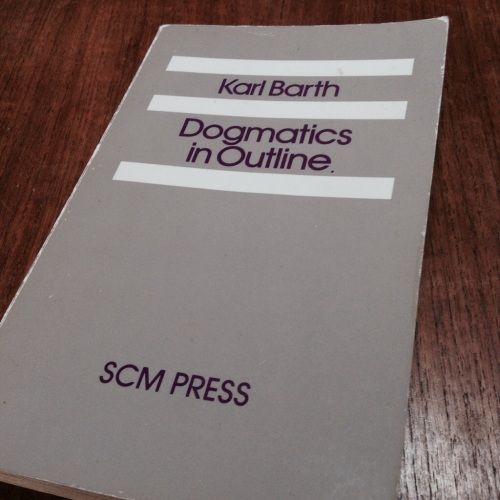Yesterday I had the opportunity to present a summary of my 12,000 word dissertation on John Owen’s late doctrine of the Trinity at a conference on Grace in Christian Experience from John Owen to Jonathan Edwards held at Union Theological College. The conference was a fascinating exploration of the varieties and continuities of Reformed thought on regeneration and the experience of salvation during a period of immense change.
I contributed a short update on my work on Owen, which I post below. It’s worth saying that I phrased things relatively provocatively in this short piece in order to whet the appetite. The dissertation itself merely begins the important work of exploring what Owen is trying to do in his mammoth mature projects. Many questions remain. Still, I hope this may be stimulating to some.
Title: John Owen’s Hermeneutics of the Trinity and the Holy Spirit as bond of love
State of the question
One of the major theological trends of the 20th century was a so-called ‘revival of Trinitarianism’. However, in the last decade or so people like Lewis Ayres and Stephen Holmes have argued that the 20th century doctrine is really radically different to the classical, catholic doctrine of the Trinity. Debates about social trinitarianism and eternal subordination of the Son fit squarely into this.
The 17th century has been identified as a key turning point in the shift away from the classical doctrine of the Trinity. There have been a number of recent historical accounts of the period, in which John Owen figures prominently as a stout defender of orthodoxy (Dixon, Mortimer, Lim).
The focus of this research has been on Owen’s output during his time as Vice-Chancellor of Oxford University: esp. On Communion with God. However, Owen’s vast late output as a marginalised congregationalist (1670s on) has been suprisingly overlooked.
In his major recent biography Crawford Gribben plausibly suggests that after the Restoration, a disenchanted Owen turned away from scholasticism in search of a Biblical theology and piety "unencumbered by the thickets of scholastic terms and distinctions" (10:490).
So despite the recent, and fair, emphasis on Owen as a Reformed scholastic, it remains an open question whether Owen’s mature doctrine of the Trinity is that traditional or whether it is part of the the wider shifts that were taking place in the doctrine of the Trinity in the late 17th century.
Approach
To study the shape of Owen’s mature doctrine of the Trinity, I chose to concentrate on a doctrine that suddenly becomes prominent in a number of Owen’s writings from the 1670s on: that the Holy Spirit is the ‘bond of love’ between the Father and the Son.
As many will recognise, this rather speculative doctrine was an embedded feature of medieval scholastic theology. In high scholastic authors like Aquinas and Scotus, it is usually related to the psychological analogy, where, on the analogy with the human soul, the Son or Word proceeds from the Father by way of intellect, and the Holy Spirit or Love proceeds from the Father and the Son by way of will.
Because of its speculative and philosophical nature, this doctrine provided an ideal test case for understanding Owen’s mature ‘hermeneutics’ of the Trinity. In my dissertation I asked
- How did Owen’s formulation of the doctrine compare with scholastic formulations? How scholastic is Owen when he’s talking about the Holy Spirit as the bond of love?
- How did Owen justify this speculative teaching Biblically? What can we learn about how Owen moves from Scripture to theology?
Findings
A sample of Owen’s late doctrine of the Trinity.
Owen says this in his Hebrews commentary (1674)
There are Ineffable Mutual Delights and Joys in and between the Persons of the Sacred Trinity, arising from that Infinite Satisfaction and Complacency which They have in each Other from Their respective In-Being, by the Participation of the same Nature, wherein no small part of the Blessedness of God doth consist. (19:68-69)
Infinite satisfaction arises from mutual in-being (in other places: mutual acts of knowledge and love). This constitutes no small part of the blessedness of God. Blessedness of God dependant on the mutual communion of the three persons in the one nature.
I don’t have time to get into the details, so I’ll just give one of the conclusions I drew from a close reading of this kind of passage.
How scholastic is Owen when he’s talking about the Holy Spirit as the bond of love? Not very.
In explaining how the Holy Spirit is the bond of love, Owen wasn’t really drawing on the scholastic tradition. He doesn’t make any use of the psychological analogy. Instead he’s developing a Puritan emphasis on the mutual communion between the divine persons that comes from passages like Proverbs 8.
Owen’s mature writings show no interest in demonstrating how this reading of the Biblical language fits with the characteristic scholastic concern for divine simplicity, or really even qualifying it by mentioning divine simplicity. This is not to say that Owen no longer believes in divine simplicity – he does! But in an era where the doctrine of the Trinity is under intense attack, he judges that it is more helpful to concentrate on Scripture’s regular vocabulary of love and delight in order to help his readers get a grasp of the relations between the divine persons.
What Owen does do is develop the Puritan emphasis on the communion between the divine persons into an all-encompassing trinitarian piety. Whether on heaven or on earth, union gives birth to communion in love. It’s tempting to speculate that Owen is offering an alternative to the collapsing scholastic synthesis, by offering this non-philosophical but still rather speculative doctrine of the Trinity, in a way similar to what Jonathan Edwards was to do a generation or so later in New England.
So alongside Owen the Reformed scholastic, my research points in the direction of seeing Owen the rebuilder, who offers an integrated trinitarian worldview and piety, based not on so much on Aristotelian metaphysics as a speculative reading of Biblical passages into the eternal life of God. In taking this route, I suggest that Owen’s mature hermeneutics of the Trinity was part of a process by which the orthodox doctrine of the Trinity became modern.




